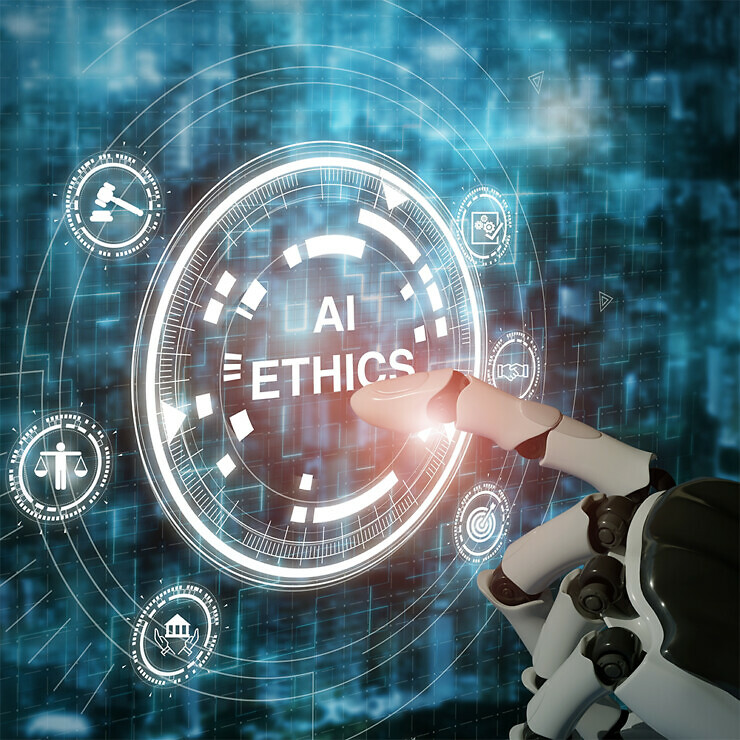Introduction: AI Meets Healthcare Can you imagine for instance walking into a doctor’s room where instead of spending hours on tests and diagnosis; an instant AI-diagnosis is given? Sounds amazing, right? Due to that, precision in diagnosis has enhanced as well as speediness through personalized medicine making healthcare more efficient through the inclusion of artificial intelligence. Let’s look at some ways through which artificial intelligence is changing the healthcare system.
(Source:SoluLab)
AI Diagnostics: Quickness and Accuracy One significant role that AI has played in the health sector is diagnostics. AI systems are able to analyze clinical images such as X-rays, MRIs and CT scans within a very short time compared to human beings.They can hit upon anomalies including tumors, fractures, or different conditions that are probably ignored via the human eye.
Example: Google’s AI version can hit upon diabetic retinopathy in eye scans with 90% accuracy, assisting docs diagnose this condition early and save you blindness.
Personalized Treatment Plans AI doesn’t just forestall at diagnosis—it’s additionally being used to create customized remedy plans. By reading an affected person’s medical records, genetic facts, and life-style, AI can advocate the simplest treatments tailor-made to every person.
Example: IBM Watson for Oncology uses AI to suggest cancer remedies primarily based on data from thousands and thousands of clinical journals and affected person information, supporting docs to make knowledgeable decisions.
AI-Powered Virtual Health Aides These AI-powered virtual fitness trainers are just like having a doctor in your wallet. They can remind you about medications, schedule appointments, and even give you some primary medical advice. They recognize your symptoms and provide advice through natural language processing (NLP).
Example: The apps Ada and Babylon Health diagnose symptoms electronically and advise on whether a doctor is needed.
Robotics in Surgical Operations: High Accuracy and Strict Efficiency Robotic surgery is another fascinating application of AI in the health sector. Such robots assist surgeons by providing them with accurate movements impossible for a human hand resulting in less invasive procedures, shorter recovery periods, and improved patient outcomes.
As for the AI enabled da Vinci Surgical System, surgeons can now perform complex surgeries with utmost precision and dexterity such that it is easy for them to navigate through the entire procedure.
(Source:Linkedin)
The language barrier poses a big challenge for AI to penetrate into healthcare. More data security fears, require large volumes of training data and high costs of implementation are some of these problems. Nevertheless, the obstacles are being overcome with advancements in technology.
AI’s future prospects in healthcare are promising.. We are coming towards an era where diagnosis is faster, treatment is customized and preventive health care becomes better than reactive one. As AI continue to evolve so will its function in health care become more significant making it a powerful opponent against diseases
AI stands here to empower rather than replace physicians – this is why doctors shouldn’t fear or resent it.. By merging doctor’s expertise alongside machine power we can transform how we offer medical services – increasing their efficiency, availability and customization beyond anything before possible through this combination approach paving way into brighter tomorrow of medicine driven by machines’ brains





